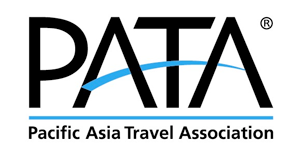Sabah is positioning itself as a top travel destination as it gears up for Visit Malaysia Year (VMY) 2026, with strong support from local officials aiming to boost tourism. The Minister for Tourism, Culture, and Environment, Datuk Seri Christina Liew, emphasized that Sabah, already recognized as a preferred destination, is well on its way to meeting the expectations of visitors, both domestic and international, in preparation for the milestone year.
Sabah’s Strategic Preparations for VMY 2026
According to Liew, Sabah’s preparations for VMY 2026 are crucial, as the region continues to experience a rising demand for its tourism offerings. She urged local stakeholders, including hoteliers, tour operators, and travel agents, to capitalize on the growing trends that favor destinations like Sabah. The minister encouraged these tourism players to introduce new initiatives that would cater to the evolving preferences of travelers seeking adventure, nature, and eco-tourism experiences. Liew also highlighted the importance of offering visitors genuine warmth and hospitality, ensuring that everyone who visits feels welcomed and valued.
With the official launch of VMY 2026 in sight, Liew assured the public that the Sabah Tourism Board (STB) would continue to provide support to local tourism businesses to help them achieve the goals set for the event. The initiative is expected to increase the region’s global tourism appeal, contributing significantly to the economy and further solidifying Sabah as a key tourism hub in Malaysia.
Emphasis on Sustainable Tourism
One of the primary areas of focus for Liew and the tourism sector is ensuring that the growth in tourism does not come at the expense of the environment. As Malaysia’s tourism industry continues to thrive, Liew stressed the importance of sustainable tourism practices. She emphasized that eco-tourism and nature-based tourism are becoming increasingly popular, which could place considerable strain on the natural resources of the region. In light of this, she advocated for a balance between tourism development and the conservation of Sabah’s diverse ecosystems, ensuring that the area can continue to attract visitors while preserving its natural beauty for future generations.
The need for sustainable tourism is also closely tied to Malaysia’s larger goals in the ASEAN region. As the country assumes the chairmanship of ASEAN in 2025, under the theme of “Inclusivity and Sustainability,” there is a significant opportunity to leverage regional collaboration in areas like tourism and trade. This increased cooperation will benefit not only Sabah but other parts of Malaysia and the broader ASEAN community. Liew highlighted that the tourism sector must work together to promote regional peace, stability, and prosperity, with sustainable practices at the core of these efforts.
Growing Visitor Arrivals and Tourism Industry Growth
As Sabah anticipates a surge in tourism, particularly in 2025, Liew expressed optimism about the region’s continued upward trajectory in terms of visitor arrivals. With the support of the Sabah Tourism Board and other stakeholders, the state aims to meet the growing demands of international and domestic tourists. This influx is expected to accelerate the growth of the tourism industry, which in turn will have positive impacts on other sectors of the local economy, such as hospitality, retail, and transport.
The potential for increased tourism is not just about attracting visitors but also about ensuring that these visitors have a memorable experience. By providing top-notch services and focusing on sustainable tourism, Sabah is setting the stage for long-term success in the global tourism market.
Malaysia’s Role in ASEAN’s Tourism Future
Liew also pointed out that 2025 would be a significant year for Malaysia, as the country assumes leadership of ASEAN. As chair of the regional bloc, Malaysia will play a crucial role in shaping the future of ASEAN, particularly in terms of economic collaboration and tourism. The shared benefits of regional trade and tourism will help foster greater economic integration, creating new opportunities for countries in the region to work together for mutual growth.
Preparing for the Year Ahead
Looking ahead, Liew called on Malaysians to embrace the challenges and opportunities of the coming year with resilience and resourcefulness. She encouraged individuals to pursue personal and professional goals, noting that the future, while uncertain, is full of promise. With Malaysia leading ASEAN in the coming year, the country is poised to make significant strides in both tourism and economic development, benefitting from the global trends that favor destinations like Sabah.
Impact on the Travel Industry:
- Increased International Tourism: Sabah’s growing reputation as a sustainable and adventure-focused destination will likely attract more international tourists, helping boost Malaysia’s global standing.
- Regional Cooperation: ASEAN’s focus on inclusivity and sustainability will drive collaborative efforts among neighboring countries, enhancing the overall tourism infrastructure across Southeast Asia.
- Sustainability Practices: The push for sustainable tourism practices in Sabah is expected to influence other destinations globally, encouraging eco-friendly travel and conservation efforts.
As Sabah continues to prepare for VMY 2026, the combined efforts of local tourism stakeholders and regional initiatives will ensure that the state remains at the forefron
- TAGS / KEYWORDS:


















.png)














